Brother Lawrence, what is the mission to which you are called as congregation? In which parts of the world are you ministering?
We owe our mission in Christ’s Church to our founder, Joannes Zwijsen. He was well aware of the concrete situation of the people of his day and age, especially of the poor and ignorant. He was concerned about the vulnerable and underprivileged. He also saw the lack of faith at that time. Therefore he was particularly concerned about religious education. He wanted his followers, with Vincent de Paul as an example, to serve God in his fellowmen and thus bring them to God.
Because of this mission in the Church and of the history of our congregation we prefer to work for the development of the world around us through educational work: the guidance, in many different forms, of young people especially of those who are poor and needy. However, with a watchful eye we must always be attentive to the signs of the times. We may not allow the inspiration of the Spirit to be extinguished by clinging to methods of work and activities of which the need and importance have become less evident.
As a Congregation, we are currently present in The Netherlands, Belgium, Indonesia, Timor Leste, Kenya, Tanzania, Namibia, and Brazil.
Your founder was called “The Saint Vincent of Tilburg.” Can you explain the connection of your order with St. Vincent de Paul?
Lithograph by W. Chimaer, 1847. Bishop Zwijsen has a few letters in hand and a biography of St. Vincent at his desk.
Joannes Zwijsen had a clear model in mind for his Brothers of Our Lady of Mercy, as he called them. He wanted them to become a Vincentian community strongly engaged in the church and the community. Thus, Zwijsen honoured St. Vincent as patron saint of the works of charity and he established his congregations to minister in various institutions, such as the orphanages, schools for the poor, hospitals and institutes for disabled and elderly people. Zwijsen was one of the Dutch priests actively involved in the foundation of Society of Saint Vincent de Paul. He was deeply passionate about anything related to Saint Vincent, collecting Saint Vincent’s books and statuettes. At time he was called ‘Vincent of Tilburg’ in both admiration or jest.
Last January you participated in the meeting held in Rome: after almost a year what are your impressions with regard to that meeting? What are the challenges of charity?
Unfortunately the plans we made in January to organize some meetings to share the outcome of the meeting in Rome were disrupted by the outbreak of COVID 19. Instead of sharing the good news about the VF moving forward, we, as a General Board located in The Netherlands, had to deal with confronting the situation of taking care of our sick fellow brothers and the loss of some members due to the virus.
At this moment, the world is facing an overwhelming situation, not in one area or some areas, but everywhere around the world. Usually, when a disaster takes place in a specific area, people in other areas can help. But now we have limited people and resources to help because the whole world is affected. I think this is a huge challenge of charity today.
Charity in our day has been upset by the arrival of COVID-19: how did you respond as a religious congregation to the pandemic?
The General Board has encouraged the provincial and regional boards and the local CMM communities to investigate what is needed in their own area and respond to that need on a local level, with whatever means they can find.
In Indonesia, brothers used part of their household budget to make purchases for people in financial need by Covid-19, or they held fundraising campaigns for this purpose. In addition, some Dutch funds were made available by the General Board for Indonesian communities to help people in their surroundings. Also in Timor Leste the brothers cooperate in providing food for economically affected people. And together with the sisters they made many masks.
- Brothers collecting food supplies in Timor Leste
- Brothers providing food in Aek Tolang, Indonesia
Many brothers work in education, but in many countries the schools are temporarily closed. Wherever possible, lessons continue as usual, for example via an internet connection. The brothers in Kenya, Indonesia, Timor Leste, and Namibia make use of these possibilities.
The brothers in Brazil made a commemorative plaque and a prayer for the living and the dead, one of the seven spiritual works of mercy. This way they support the world through prayer, as stated in our Rule of Life: “In our prayer we are united with all people. We remember the great needs of the world and the Church. The small world in which we live should bring us continuously to fervent intercessory prayer for one another and for all who have a special place in our hearts. We also faithfully continue to remember in our prayers our deceased fellow brothers and relatives.”
Could you share with us a significant moment in your journey as Superior General of the Congregation?
There have been several significant moments, marked by both joys and challenges. First, taking over the responsibility as the first non-Dutch superior general was a challenge. I can compare this experience with a two way opening door that takes care of the historical traditions of the congregation and also opens up to new inspiration.
Secondly, I want to mention the many Jubilee celebrations that took place in my term of office so far: the Year of Consecrated Life (2015), the Year of Mercy (2016), 400 years Vincentian Charism (2017), the Centenary year of the death of our Brother Andreas, Venerable Servant (2017), and the 175th anniversary of the Congregation (2019). These events gave me the opportunity to deeply reflect on our spirituality and I was, and still am, grateful for the opportunity to share this with my fellow brothers and other people.
Thirdly, being part of the VFEC I have learned a lot about the Vincentian family worldwide. This has encouraged me to reflect on how to contribute towards making the Vincentian charism and spirituality become more a worldwide movement.
Finally I would like to mention the joy of seeing growth of the congregation in some parts of the world, and at the same time experiencing the pain of losing members through death, leaving the congregation, but also aging of members. The combination of taking care of the elderly in the declining parts of our Congregation, and the care for good formation in the growing regions and provinces is a big challenge.



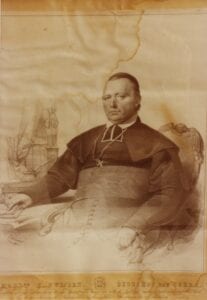

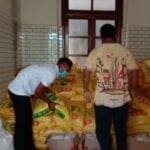
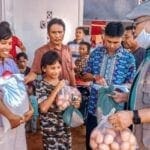
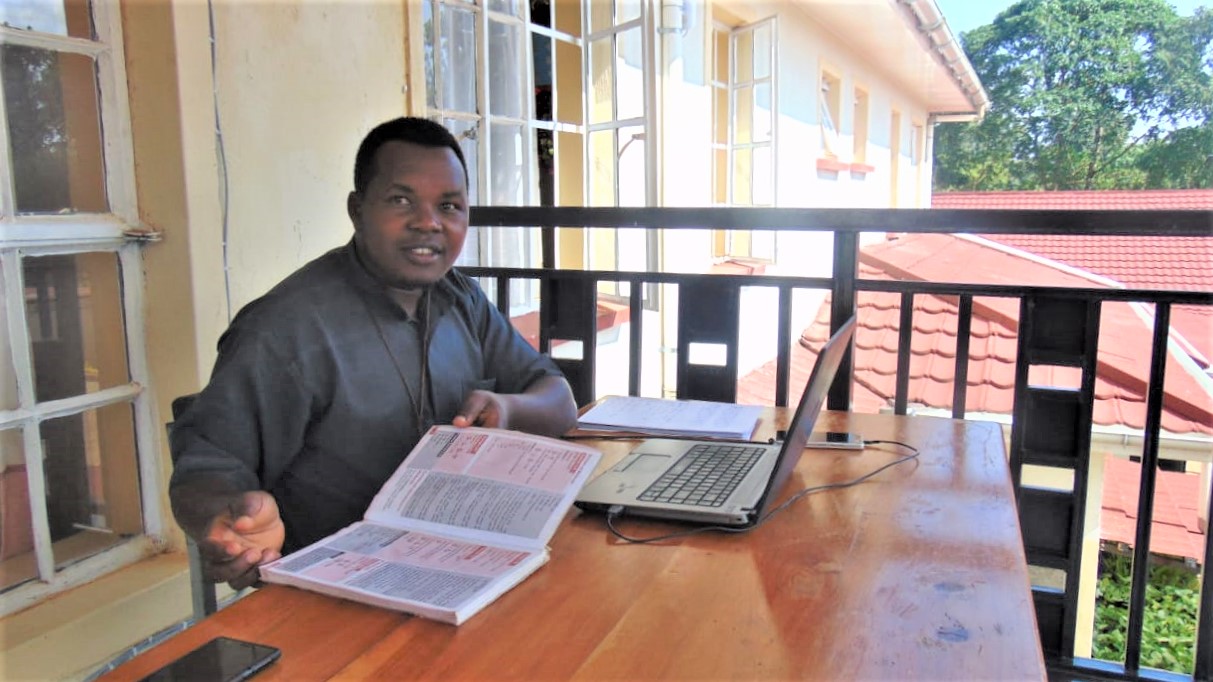
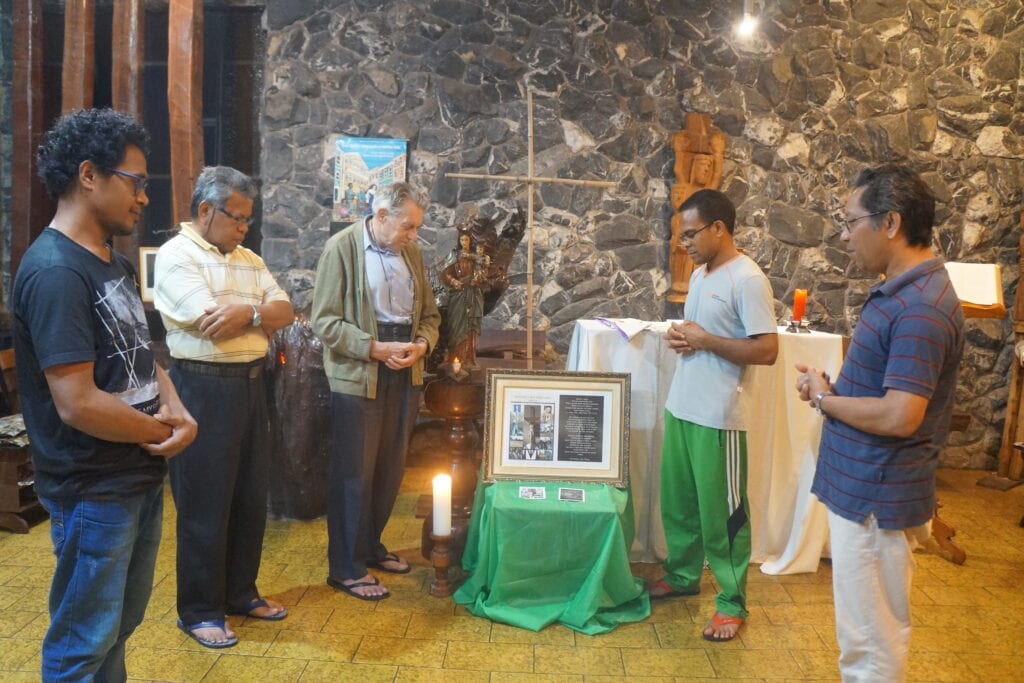




May God bless you with all your work, that may give positive impacts for the kingdom of God. Amen.